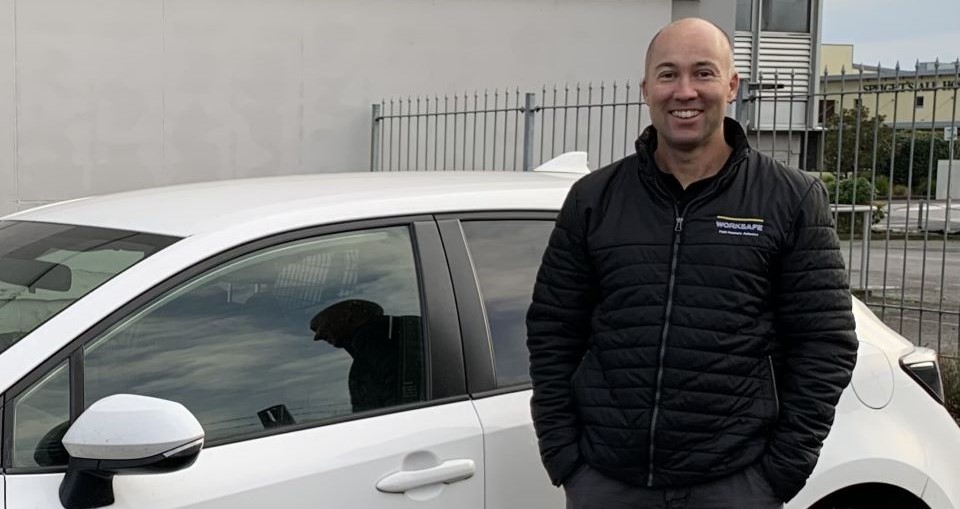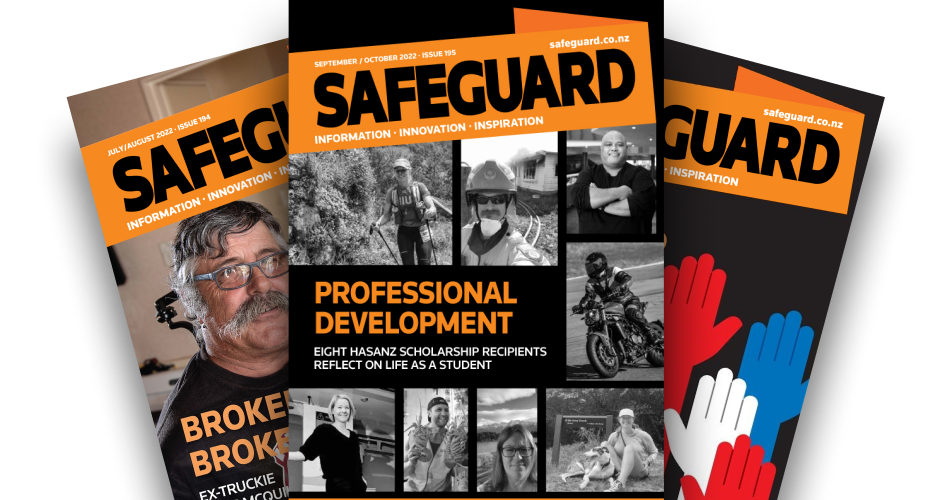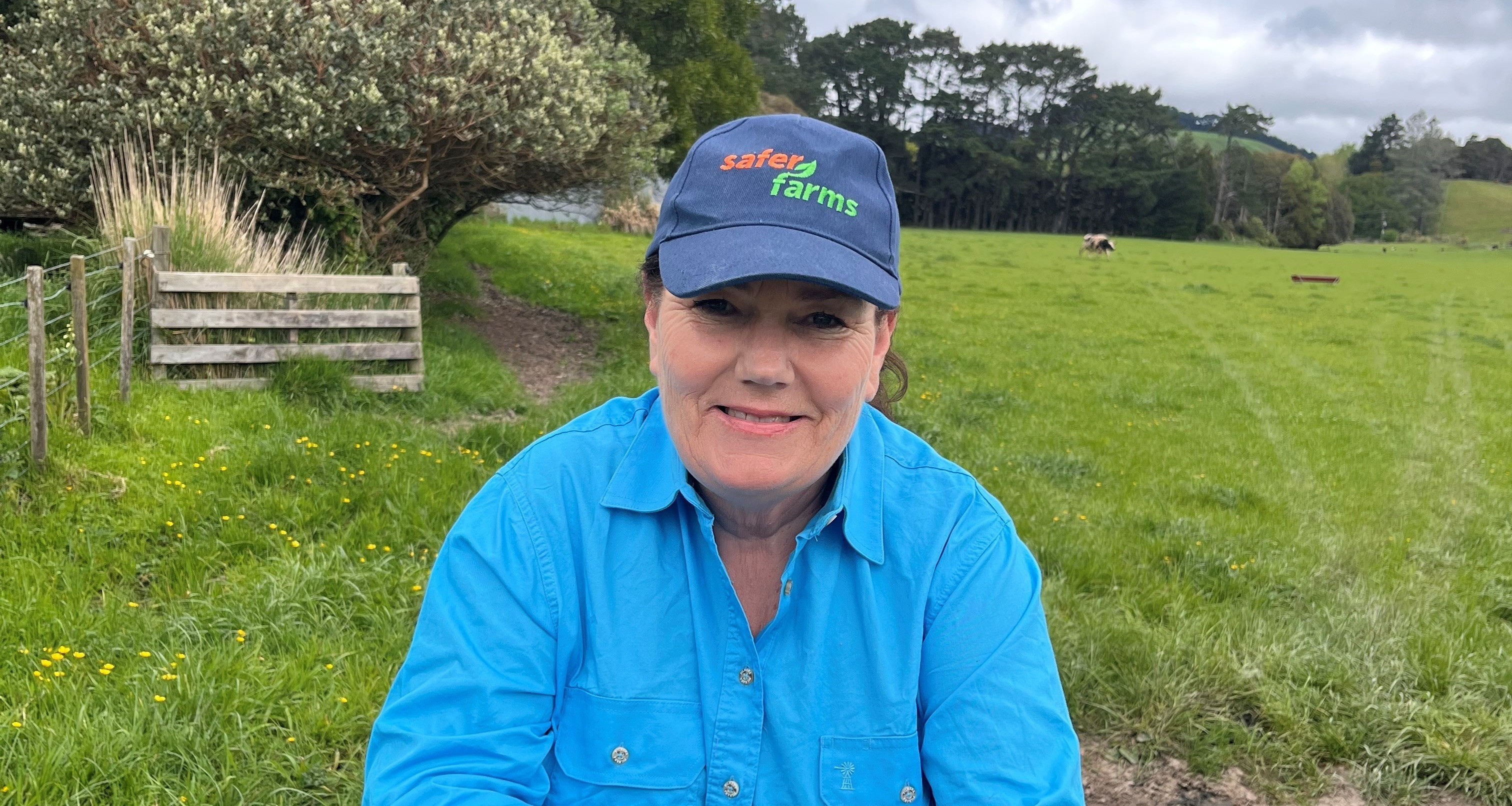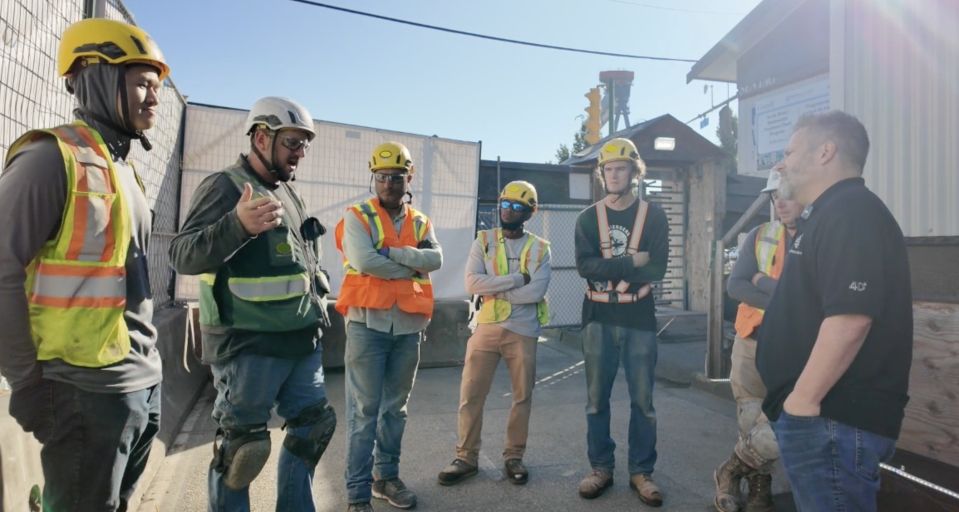Carl Baker used to work in construction and admits some of his work practices were potentially harmful – in particular, some of what he was breathing in. When a WorkSafe inspector visited and pointed out the dangers, he was shocked.
“I had no idea. It was quite scary,” he says.
A week later, Baker, who had spent 14 years in the New Zealand Army prior to moving into construction and working his way up to commercial foreman, was approached about joining WorkSafe. Ten years on, Baker is inspectorate area manager, Palmerston North.
He admits he had some preconceived ideas about WorkSafe and its role.
“I wanted to know if there was flexibility to be able to communicate, to educate, and to get people over the line. And they said 100%.
“When I heard that I thought, this is a really cool job for me. I’d like to go out and pass on the knowledge I’ve learned to people in the industry who aren’t aware of some of the things that could harm them.”
Baker reckons it’s still a cool job and says he looks forward every day to going to work, knowing he’s going to learn something new and make a difference.
“We never have a crystal ball to say the engagement we did today made this difference – it’s impossible to get that information. But you can walk away with your hand on your heart saying the engagement you did today made a difference.”
Building the inspectorate
The regulator is adding up to 60 new inspector recruits this year as part of a $2.7 million a year investment to grow the inspectorate. Training of one intake is under way, with recruitment for the next group under way. They will start in October.
Rebuilding the inspectorate is a key challenge, Baker says. The organisation currently has a “limited” number of trained inspectors and utilising them to the best ability is a daily challenge. “We can’t be everywhere at once.”
WorkSafe’s narrowed strategic focus is helping somewhat, as is ongoing intel on where harm is occurring.
“We don’t do wall-to-wall assessments. We’ll go in and be mindful about time on the site, because it can potentially delay production or slow down business. Providing too much information at once isn’t effective because people can’t remember everything.”
Instead, the inspectors focus on the critical risks and talking to workers –including understanding how they can raise issues and concerns with their employer.
“That allows us to spread our resources and not be on site too long.”
Inspector attributes
What makes a good inspector? “A passion for health and safety,” Baker says.
Some people join WorkSafe with their own stories of near-misses or incidents to themselves or family or friends which have inspired them to want to help stop similar incidents happening again.
“We are in a very privileged position, so you need a genuine passion along with empathy, and great communication skills.
“We have the opportunity to build rapport, educate and engage with people who may have their own preconceived ideas about WorkSafe.”
Industry knowledge is an advantage, particularly in WorkSafe’s key sectors of agriculture, construction, forestry and manufacturing, but Baker says it’s the other skillsets which can set people apart.
In his Palmerston North team of eight he has two inspectors from the building and trade sector and one former paramedic, with others coming from roading, insurance, ACC and police roles.
However, inspectors can’t be expected to have in-depth knowledge of every industry they cover – that’s where communication skills are so critical. Baker’s analogy? Inspectors doesn’t necessarily need to know how cows are milked. They do need to know how to engage farm workers in a conversation about the biggest risk on the site, the controls they have in place and the hierarchy of controls.
“If someone defaults straight away to ‘I just rely on people not to put their hand in that machine’, for example? That’s where we can make some suggestions about a higher level of protection. It’s about trying to educate people on where they are at and getting them to a level that doesn’t rely on the human factor.”
Learning every day
Baker is clear that inspectors don’t take ownership of issues they come across. “The person who creates risk must manage risk. Our job is to provide guidance on how they can help themselves out.”
If there are technical questions to deal with, WorkSafe has experts the inspectors can contact to ensure they have the right answers. The inspectors also discuss issues with others in their local team.
“Someone will mention a particular machine they’ve seen and suddenly everyone in the office is gathered round looking at the photos, learning about that machine.
“You learn every single day in this job.”
Or course, the job isn’t just education – there is the enforcement side too. Decisions are run through an enforcement decision model – essentially a flow chart – which helps provide consistency around how regulatory powers are applied.
He cautions that every inspector will face difficult situations – attending fatalities and communicating with the deceased’s whānau.
“We feel for them, and we still have a job to do. It’s about how we go about that and uphold our values. It’s a challenging part of the job but it can also be rewarding, because if we provide clarity about what we are doing, the direction of any investigation – if there is one – and we keep them informed, I think it can be comforting for them.”
The training programme
The foundation training programme for inspectors takes around 30 weeks, including 15 weeks of technical learning, followed by 15 weeks of workplace learning. This focuses on hazardous substances, asbestos awareness and communications skills – topics that weren’t covered in Baker’s training days.
This year’s trainees will also find themselves getting a lot more hands-on. Time is split between ‘classroom’ work – both face to face and online done in their WorkSafe office – and time in the field putting their learning into practice.
(Trainees are recruited for the specific offices they’ll ultimately work from. Baker notes they are very much part of the team from day one.)
“It’s all well and good sitting in a classroom reading a book about a machine that could cause harm, but the current intake going through training are actually going off to see the machine, where possible, so they can visualise what they’re learning about.”
Once the initial training is completed, they’ll be back in the office full-time, heading out the door with warranted inspectors to apply their skills.
Career progression
There’s no set time frame from finishing training to being assessed for their warrant. Besides learning at different pace, Baker says each trainee will be exposed to different opportunities.
A trainee inspector currently starts on $83,406. Gaining a warrant pushes that up to $86,012.
Level one inspectors will also begin an 18-month development programme, broken down into six-month increments, which will see them progressing from a level one, stage one inspector to a level one, stage three inspector, with set training required and competencies to be achieved during each period.
After 18 months, the inspectors will face an assessment panel. If successful they become a level two inspector. Next step up is senior inspector, but there are other areas within WorkSafe to progress to as well.
Making a difference
Baker was an inspector for five years, progressing from inspector to senior inspector, before stepping into a management role. Others move on to become principal inspectors, who provide technical advice and guidance, supporting inspectors with investigations and handling internal reviews, rather than doing on-site assessments.
He’s still passionate about the job, which he describes as being about making changes to the nation’s health and safety culture, whether by education or enforcement.
“A lot of Kiwis are genuine good buggers who just want to do the right thing – and if you don’t know what you’re doing is potentially harmful, you just carry on doing what you are doing.
“Our ability to go out there and influence businesses to do the right thing is a very, very privileged position to be in.”
Baker is enthusiastic about the new recruits coming on board this year and the opportunities and challenges which await them.
“There are exciting opportunities and it’s an exciting, enjoyable job.”




